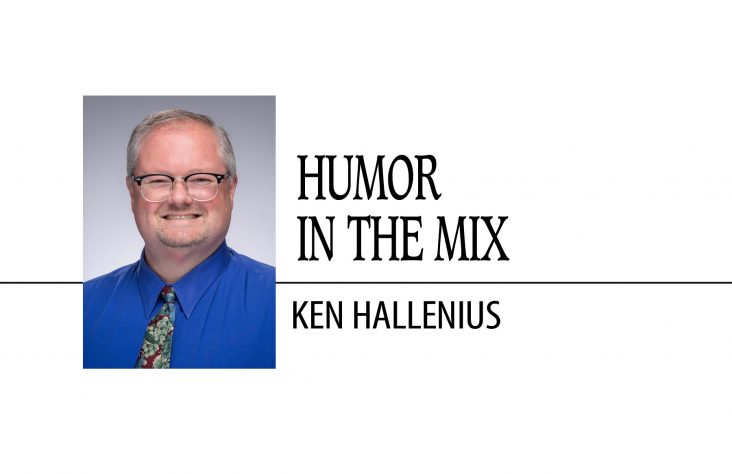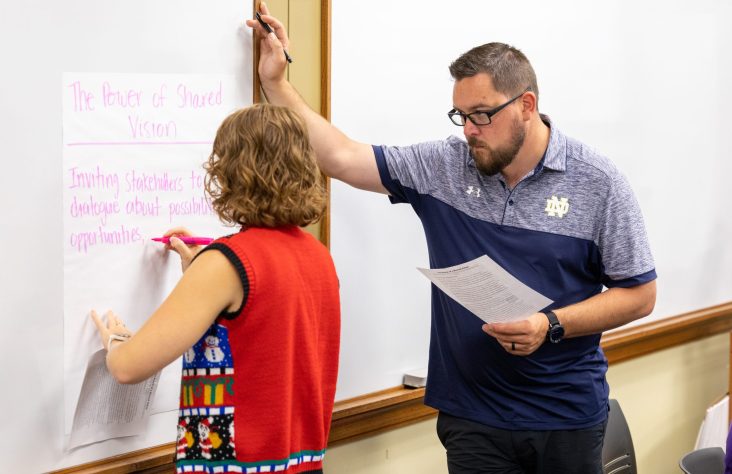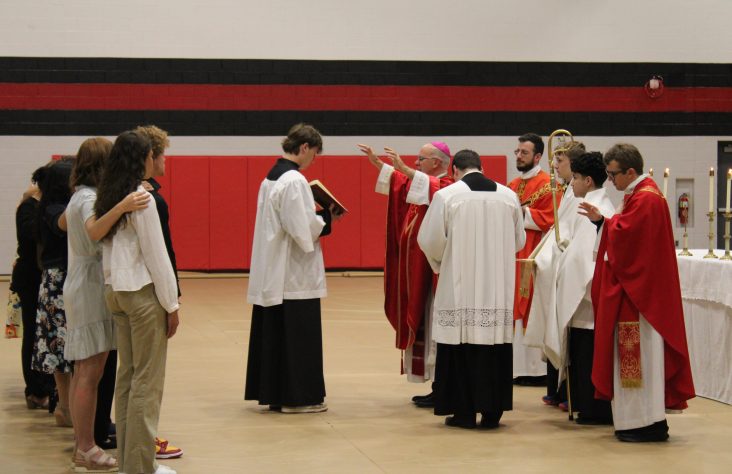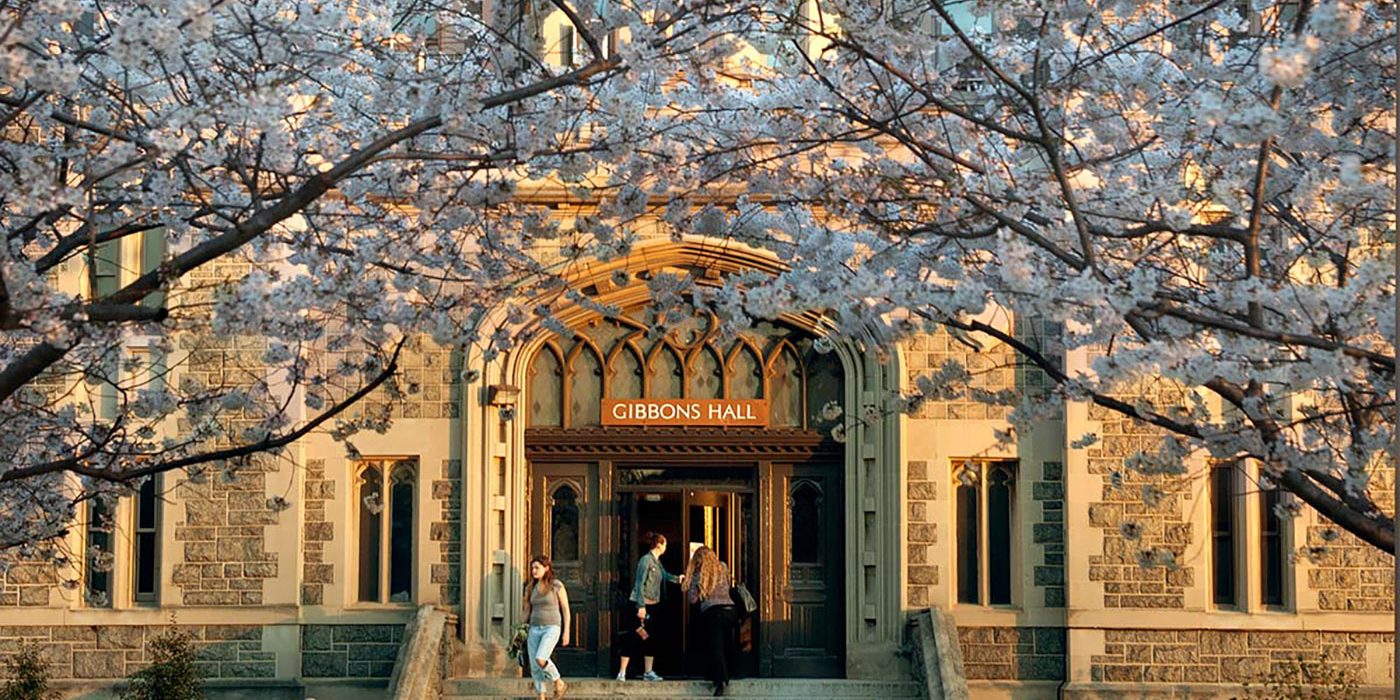February 1, 2018 // Local
Servus Omnium to welcome Catholic University provost
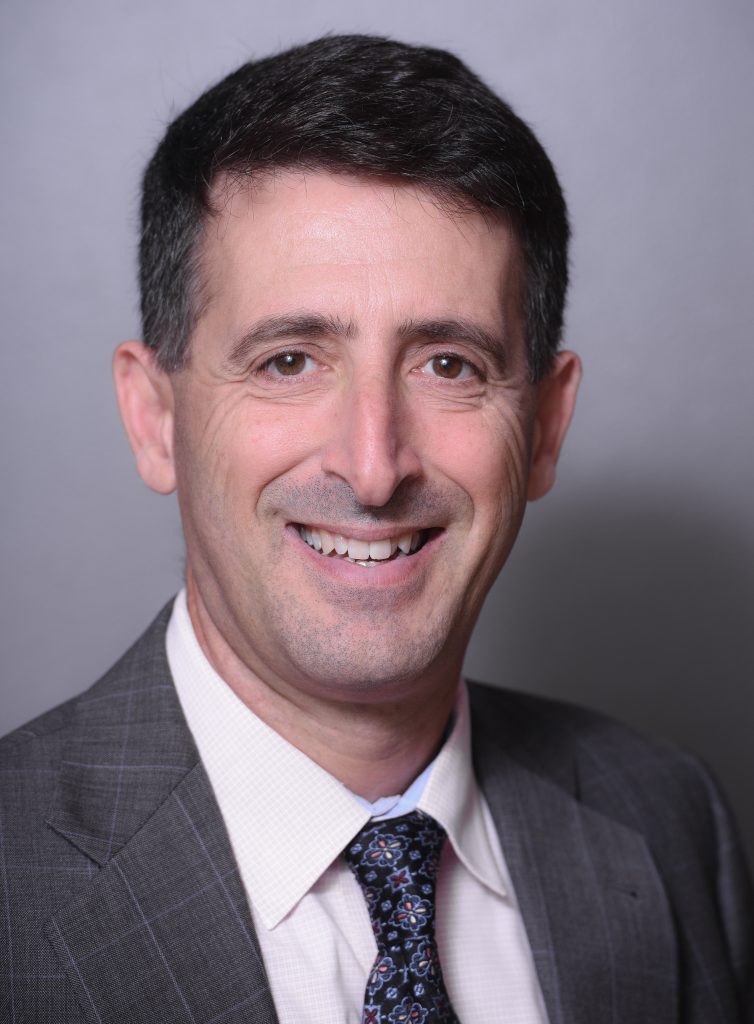 If Andrew Abela, Ph.D., could go back and tell his 20-year-old self just one thing, what would it be?
If Andrew Abela, Ph.D., could go back and tell his 20-year-old self just one thing, what would it be?
“I would tell myself to seek first the kingdom of God,” said Abela. “It took me a while to realize that and would have been better if I had started earlier.”
It is rear-view mirror wisdom such as this that his varied audiences find refreshing.
Abela, provost of The Catholic University of America, will be the keynote speaker at the 2018 Servus Omnium lecture offered by the University of Saint Francis on Tuesday, Feb. 13, at the USF Robert Goldstine Performing Arts Center, 431 W. Berry Street, Fort Wayne.
Bishop Kevin C. Rhoades will begin the event with an opening blessing at 7 a.m., followed by a Mardi Gras breakfast that will be served prior to Abela’s presentation, titled “Faith and Business.”
Before beginning his academic career, Abela worked for several years as a brand manager at Proctor & Gamble, a management consultant with McKinsey & Company and managing director of the Marketing Leadership Council of the Corporate Executive Board. His research on marketing ethics, Catholic social doctrine and internal communications has been published in varied academic journals. He co-authored with Dr. Joseph Capizzi, “A Catechism for Business,” now in its second edition.
Abela also won the 2009 Novak Award, presented by the Acton Institute for “significant contributions to the study of the relationship between religion and economic liberty.”
Asked what person in his personal or business life was most influential in leading him to a future in religion and ethics, Abela names two people immediately.
“Professor David Schindler at the John Paul II Institute for Marriage and Family introduced me to the social encyclicals of St. John Paul II,” he said, “and two years later, Professor Joe D’Cruz at the University of Toronto’s Rotman School of Management, at a providential lunch meeting in my married life convinced me that leaving my highly paid management consulting job to go and do a Ph.D. in business ethics would not be a crazy idea.”
In today’s bustling world of commerce, are more business leaders looking for religious or moral guidance?
“Religious business leaders certainly seem to be,” said Abela. “Over the last decade, I’ve noticed more people realizing that separating their faith from their work is a very bad idea.”
How well does he think the teaching of critical thinking is in the undergrad courses in his university?
“Very well. The key role of philosophy and theology in our core curriculum is a real strength here, stretching our students’ minds to deal with the most challenging problems in life, which really helps them develop their critical thinking skills,” said Abela.
“More importantly, our entire core curriculum help them develop a robust world view, from within which they can address the challenges they will face, both business and personal. Teaching critical thinking without such grounding turns students into perpetual critics, who can see the flaws in everything but can never build anything.”
Abela said he hasn’t noticed a decline in business ethics during the past 10-20 years, nor a decline, per se, in ethical transgressions.
“Ethics in business is certainly not any worse than ethics in any other human endeavor right now. Indeed, the most recent polls I’ve seen show declines, although the actual levels are still too high. To further improve things, we need to be more explicit about the importance of religious belief for driving ethical behavior. Both common sense and social science point to the same thing: Religious people tend to be more ethical. And yet we seem to make it more difficult for people to be religious in the workplace.”
Does the Church offer enough relevant guidance through parish priests and bishops, and are priests being taught about business needs as related to society prior to leaving the seminary — or are basic Church teachings are adequate?
“There’s always more that can be done here,” concluded Abela. “We’ve recently launched a master of science in ecclesiastical administration, which is focused on teaching practical business skills but also covers the larger principles of the social doctrine.”
Tickets to the breakfast and presentation are $10 in advance, $15 at the door. Tables can be purchased in advance for $80, and corporate sponsorships are available. For more information about the Servus Omnium lecture visit sf.edu/servus-omnium or contact Dr. Lance Richey, dean of the USF School of Liberal Arts and Sciences, at 260-399-8112 or [email protected].
The best news. Delivered to your inbox.
Subscribe to our mailing list today.


